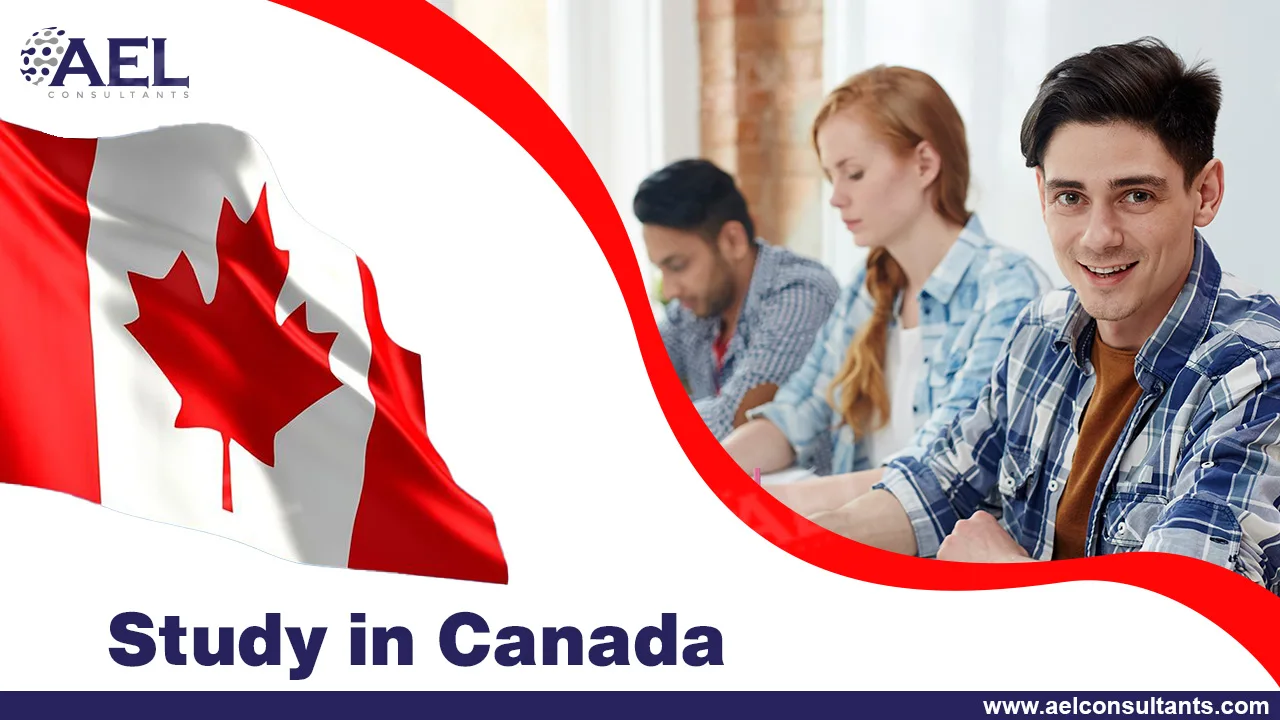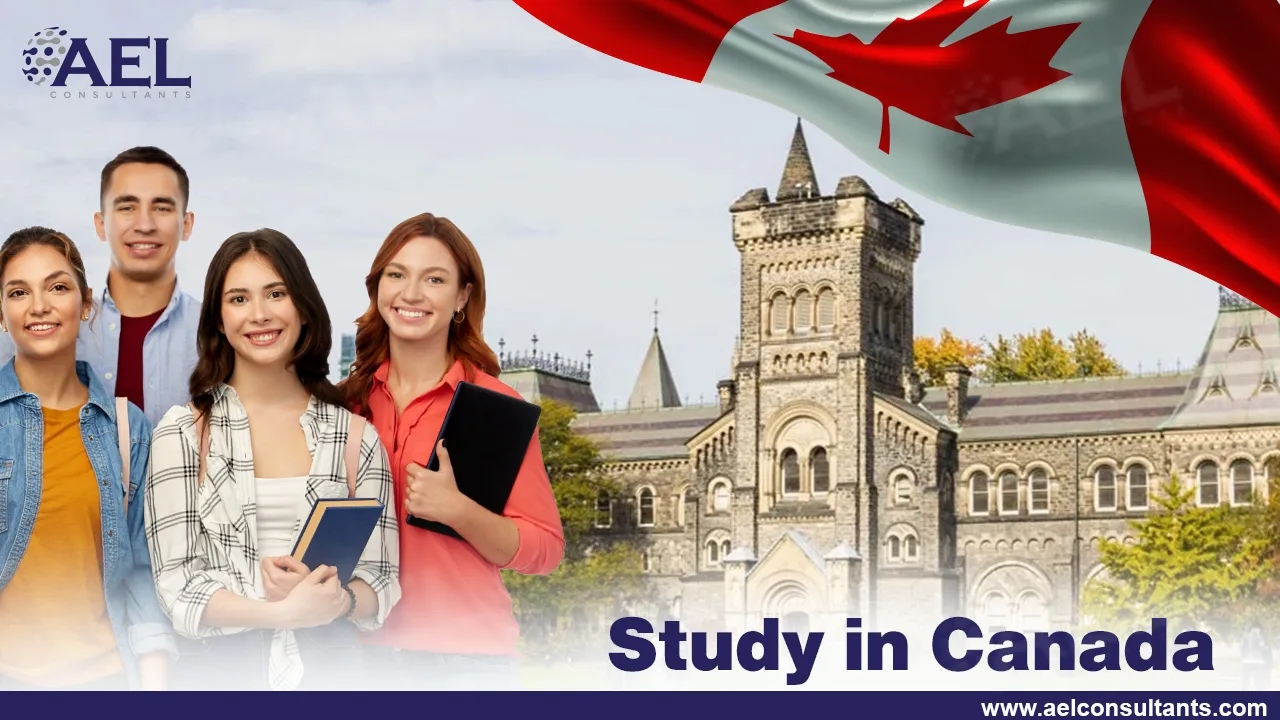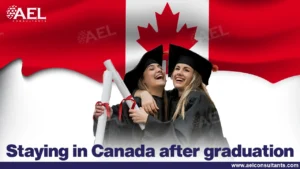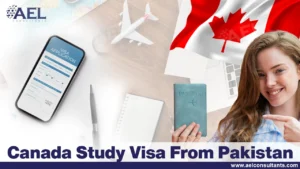Dreaming of a global degree that opens international doors? If yes, then it’s time to study in Canada. In 2025, many Pakistani students will choose Canada for higher education not only because of its world-class universities but also because of its secure cities, inclusive culture, and future career opportunities.
From scholarship to post-study work to permanent residency routes, Canada doesn’t just provide education, it provides opportunity for the taking. Yet moving abroad also raises questions: How do I apply? Is it safe? Can I pay for it? This guide provides details on that.
Why More Pakistani Students Are Choosing to Study in Canada in 2025
Many overseas students enroll to study in Canada due to its globally ranked universities. Some of the leading institutions include Mohawk College, Cambrian College, University of Saskatchewan, Conestoga College, Trent University, and Algoma University, which provide programs in STEM, Business, and Arts.
Quality of life and multicultural environment
What adds to the appeal of studying in Canada is its multicultural, friendly student population. With vibrant Pakistani communities in Toronto and Calgary, you’ll be made to feel at home and nurtured.
Post-study work and PR opportunities
In 2025, Canada’s immigration policy will still be student-centered. With a Post-Graduate Work Permit (PGWP) and transparent routes to permanent residency (PR), studying in Canada can pave the way for a long-term career and life in Canada.
Scholarships to Study in Canada for Pakistani Students in 2025
Planning to study in Canada in 2025? Scholarships can lighten your financial load and allow you to concentrate on your objectives.
Government and University Scholarships for Study in Canada
Canada has various renowned scholarships available for Pakistani students aspiring to do undergraduate, master’s, or Ph.D. degrees. Among the best are:
- Vanier Canada Graduate Scholarships: Perfect for PhD students with excellent academic and leadership abilities.
- Lester B. Pearson International Scholarship: Awarded by the University of Toronto and covers tuition, books, and living costs.
- Commonwealth Scholarships: Funded by the Canadian government for Commonwealth students, including Pakistani ones.
- University-Specific Scholarships: Entrance scholarships and international student bursaries are often awarded by several universities, such as York University, the University of Alberta, and McGill, based on need or merit.
These scholarships could lower your tuition fees substantially, making your dream of studying in Canada more within reach. Learn more about our Canada study services.
How to Apply and Meet Eligibility
Pursuing scholarships in Canada takes some preparation. Here is what you can do to boost your chances:
- Keep a good academic record: Most scholarships are merit-based, and therefore, your grades count.
- Write a good personal statement: Clearly state your aims, achievements, and why you wish to study in Canada.
- Prepare supporting documents: This includes transcripts, reference letters, proof of English proficiency (IELTS/TOEFL), and a well-written CV.
- Apply before deadlines: Deadlines vary, so always check the scholarship’s official site or university portal.
Mistakes to Avoid During Applications
Common mistakes to avoid are:
- Missing deadlines: Submit your application much earlier than the deadline.
- Incomplete documents: Make certain all your documents are attached, signed, and current.
- Using generic essays: Don’t reuse the same personal statement on each scholarship. Personalize it for each.
- Not qualifying for eligibility requirements: Only apply for scholarships that suit your qualifications.
If you’re still doubtful, AEL Consultants (AELC) will assist you in identifying the proper scholarship, crafting a good application, and maximizing the chances of success. Check our admission consulting services.
Staying Safe While You Study in Canada
Canada is a safe and welcoming nation with minimal crime rates and effective law enforcement agencies. It is open to diverse cultures and hosts some of the best universities in cities like Ottawa, Vancouver, and Calgary.
The Canadian government prioritizes public safety, providing equal safety regulations for international students. The atmosphere is quiet and respectful, making studying in Canada an experience that reflects the nation’s commitment to its students.
Tips to Stay Safe While Studying and Traveling
Canada is a secure country, but students must adhere to safety protocols, especially in major cities. These easy tips will help ensure their safety while pursuing studies in Canada.
- Walk around in well-lit places when moving out at night and not on deserted streets.
- Use reputable means of transport, such as public transport buses or ride-sharing services like Uber.
- Keep your belongings secure, particularly when in public or student housing.
- Save your emergency numbers, such as your university’s helpline and the local emergency numbers.
- Attend safety orientations and induction sessions provided by your university.
Remember, paying attention and making good decisions an important aspects of staying safe while studying in Canada.
Student Support Services and Emergency Contacts
Canada offers a range of support services to students, ensuring their safety and security during their studies in the country. These support services comprise:
- Campus Security: 24/7 with emergency hotlines, security patrols, and safe walk programs.
- International Student Support Offices: Assisting you in housing, health insurance, legal issues, and acclimation to life in Canada.
- Health and Wellness Services: Most campuses offer free or low-cost medical care, counseling, and mental health support.
During emergencies, the universal number 911 is called nationwide for ambulance, police, and fire. Most universities also list their emergency numbers and mobile safety apps.
Navigating the Visa Process to Study in Canada from Pakistan
Visa Requirements and Documentation Checklist
To qualify for a Canadian study visa, you should have:
- Valid passport
- Acceptance letter from a Designated Learning Institution (DLI)
- Proof of sufficient funds to cover tuition fees and living costs
- Medical examination report and police clearance
- IELTS or English test results
- Recent passport-size photos
- Filled visa application form
- A good Statement of Purpose (SOP)
Ensure that your documents are accurate and complete. Incomplete or inaccurate papers can slow down your application.
Timeline and Major Deadlines for 2025
Prepare your documents at least 4 to 6 months prior to your desired intake. For Fall 2025 (September), initiate your visa process during March or April 2025.
Visa processing time is typically 6 to 8 weeks. It varies, though, so apply early.
Check the official IRCC website for up-to-date information. Applying early maximizes your opportunity to get approved on schedule to study in Canada without worry.
AELC Visa Support to Help You Study in Canada
AEL Consultants (AELC) recognizes that visa processing can be daunting. That’s why we are here to assist.
- AELC takes you through every step of the visa process, from completing the forms to getting your SOP ready
- Our team verifies your documents to prevent mistakes
- You receive updates, reminders, and interview tips from experts
- AELC ensures timely and accurate submissions
With AELC by your side, your journey to study in Canada becomes smooth, safe, and successful.
Life in Canada: Costs, Culture, and Career After Graduation
Canada offers a diverse range of cities for students to study in, with some being more affordable than others. Winnipeg, Halifax, Saskatoon, Regina, and Charlottetown are popular choices due to their lower rent, transport costs, and student-oriented lifestyle.
These cities provide access to quality universities and community care at lower costs than big-city areas. Pakistani students often find that living in smaller cities allows for cost reduction, better concentration, and a healthier lifestyle.
Working Part-Time While You Study in Canada
Canada offers international students the opportunity to work 20 hours a week during study terms and full-time during breaks, providing them with Canadian work experience and a chance to cater to everyday expenses.
Most students find part-time jobs as cashiers, salespersons, restaurant staff, food delivery, coffee houses, campus library assistants, tutors, customer service representatives, or retail employees.
Balancing work and study is crucial for success, and many Pakistani students who study in Canada use part-time work to build confidence, communication skills, and valuable local experience.
PGWP, Express Entry, and PR Options
Post-Graduation Work Permit (PGWP): Once you’ve finished your studies, you may be eligible to apply for a PGWP. This work permit lets you work in Canada for up to three years, based on the length of your study program. It’s a fantastic way to gain valuable work experience in your chosen field.
Express Entry: Once you have Canadian work experience, you may be eligible for Permanent Residency (PR) under the Express Entry program. It is a points system immigration that favors education, language skills, and work experience. With your experience in Canada as a graduate, your opportunity to qualify is significantly improved.
Provincial Nominee Programs (PNPs): There are specific streams of immigration for international graduates in most provinces. If you have previously studied and worked within a particular province, you might be invited to apply for PR under their PNP.
How AEL Consultants (AELC) Helps You Study in Canada Successfully
At AEL Consultants (AELC), each student is given one-on-one attention. Whether you are going to study Engineering, Health Sciences, Business, or Arts, our professional team finds time to learn about your academic and professional aspirations. We then place you with the most suitable universities and programs in Canada to match your aspirations.
Full Support from Beginning to End
From choosing your university to obtaining your student visa, AELC offers total end-to-end assistance. Our counselors help you with course selection, preparing a solid Statement of Purpose (SOP), creating a professional CV, and guiding you through every step of the visa process. We also offer pre-departure orientations to ensure you are well prepared for a seamless integration into Canadian life.
A Trusted Name for Over 10 Years
With over ten years of experience, AELC has assisted thousands of Pakistani students in studying abroad successfully. Our steady success rate in admissions and visas testifies to their commitment. If you’re studying in Canada, AELC provides the trusted assistance you’re looking for in a hassle-free, successful experience. Start today by visiting our contact page.
Conclusion
Deciding to study in Canada in 2025 is more than an academic choice; it’s a choice towards a better, international future. From affordable schooling and quality programs to the ability to work part-time and gain a path to permanent residence, Canada enables students throughout and after their studies. It’s also a very safe and open country for foreign students.
But it all begins with proper planning and reassuring support. That’s where AELC steps in to assist you in university choice, visa processes, scholarships, and beyond. Proper guidance ensures that your aspiration to study in Canada is not only a possibility but is within your reach. For more details, check our services page.
Frequently Asked Questions
- How do I know if a college is real or approved in Canada?
Make sure it’s a Designated Learning Institution (DLI) on the IRCC official list. Don’t apply to unlisted ones, they won’t get you a PGWP. - Can I study in Canada without IELTS?
Yes, some universities accept substitutes such as Duolingo or TOEFL, or exempt English tests if your previous study was in English. - How to stay in Canada after graduation?
Apply for the PGWP (Post-Graduation Work Permit). It provides you with up to 3 years of work rights, your stepping stone to PR. - Can I work legally while studying in Canada?
Your student visa permits 20 hours/week during class and full-time during holidays. Adhere to it; working additional hours can jeopardize your visa. - How do I begin my journey to study in Canada from Pakistan?
Begin by selecting a course you are passionate about. Next, shortlist 2–3 Designated Learning Institutions (DLIs) in Canada. AELC can assist you with your applications and documents. - How can I be safe as a Pakistani student in Canada?
Canada’s cities are serene, but still, use public transport, avoid walking alone at night, and visit your university’s safety orientation.







